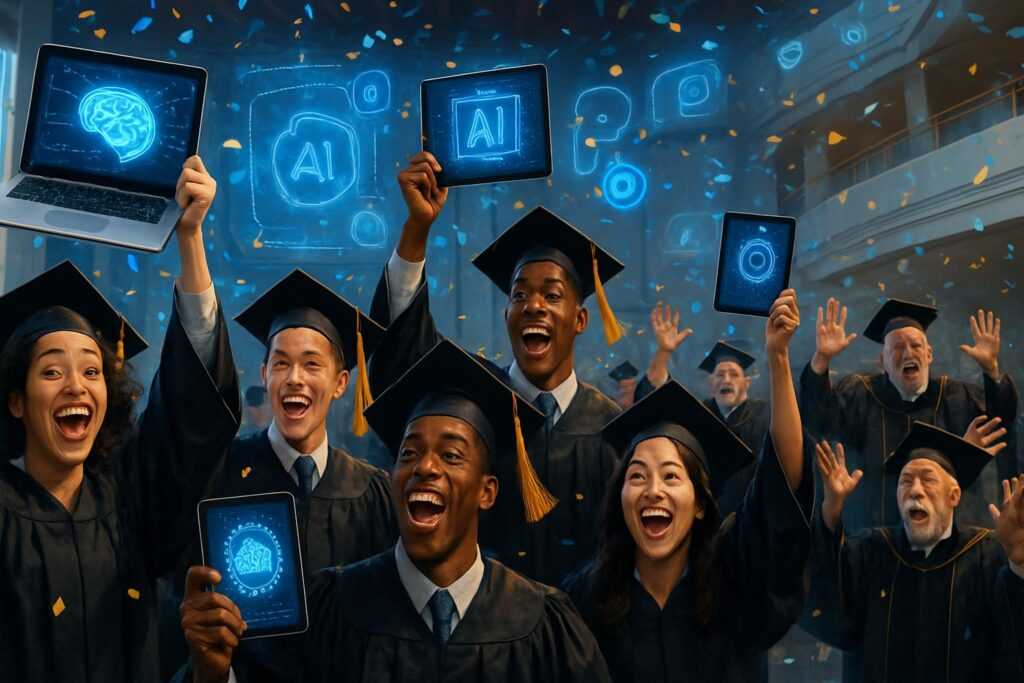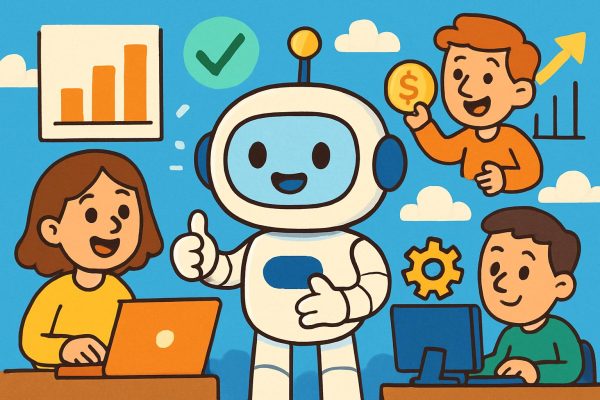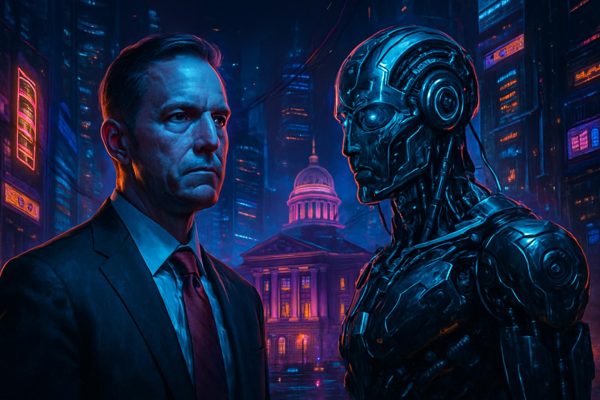As technology reshapes the job market, the skills we choose to develop today will define how we thrive tomorrow. Some fields uniquely position graduates to succeed in this evolving world, blending technical expertise with distinctly human capabilities. Are you prepared to choose a path that pairs innovation with irreplaceable human insight?
The intersection of education and the emergence of artificial intelligence is transforming how students prepare for future careers. While new technologies are expected to displace millions of jobs, they are also generating distinct opportunities for those who understand how to collaborate with machines. Choosing the right college major has become more important than ever, and certain areas of study are clearly better positioned in this rapidly changing environment. Six college majors stand out for equipping graduates with the skills needed to excel in an AI-driven world: Human-Computer Interaction, Cognitive Science, Communication Studies, Public Health, Entrepreneurship, and Education Technology. These fields integrate a mix of technical knowledge and distinctly human abilities, ensuring their value for years to come.
Human-Computer Interaction: Integrating Design and Technology
Human-Computer Interaction (HCI) is gaining attention by connecting psychology, computer science, and design to create user-friendly technology experiences. With increasing demand for intuitive interfaces, HCI professionals bring empathy and creativity to solve user challenges in a way algorithms cannot. Careers in this space, such as UX researchers and product designers, benefit from steady job growth in tech fields and a focus on user-centered design that’s difficult to replicate with AI alone.
Cognitive Science: Understanding Human Minds
Combining psychology, neuroscience, and computational analysis, cognitive science prepares graduates with a thorough understanding of how both human and AI systems process information. This expertise is becoming more essential in navigating ethical challenges related to AI and improving collaboration between people and machines. Graduates often work as analysts, ethics specialists, or consultants across healthcare, technology, and other industries.
Communication Studies: Enhancing Connections in a Digitally Saturated World
With AI producing vast amounts of content, the ability to establish authentic communication becomes even more significant. Communication majors excel in interpersonal skills, interpreting social cues, and strategic thinking—qualities that machines lack. Adding digital literacy to these strengths enables professionals to succeed in fields like marketing, crisis management, and organizational development, where strong human interactions are indispensable.
Public Health: Addressing Complex Community Needs
Public health melds data-centered approaches with human insight to tackle diverse societal challenges. Professionals in this domain often use AI tools to spot disease patterns, allocate resources, and make predictive decisions, but the final accountability for community engagement and ethical evaluation rests with human experts. Roles in epidemiology, policy analysis, and global health coordination provide not only fulfilling careers but also preserve an essential human touch in healthcare advancements.
Entrepreneurship: Identifying Hidden Opportunities
Entrepreneurship continues to be a powerful way to succeed in an automated world, as entrepreneurs can uniquely detect areas that technology fails to address. This major equips students with flexibility and risk management skills, which are necessary for building forward-looking businesses that utilize AI’s potential while meeting genuinely human needs. Graduates frequently take on roles as startup founders, innovation consultants, or business development leaders.
Education Technology: Advancing the Future of Learning
Education is changing rapidly, with technology assuming a larger role in classrooms and training programs alike. While AI tools can enable personalized learning and data analysis, the human aspect of teaching—encouraging motivation and providing hands-on mentorship—remains irreplaceable. For graduates dedicated to merging technology with traditional education, opportunities extend beyond the classroom to roles in instructional design and corporate training development.
Why This is Important
The incorporation of AI into industries increases the demand for adaptable, human-focused skills across professions. While machine learning systems handle computational and automatable tasks, they lack the judgment, innovation, and emotional understanding needed for effective decision-making and creativity. For students and professionals, preparing for AI-integrated work environments involves developing a combination of technical skills and uniquely human strengths. This preparation will not only secure their employability but also support organizations in rethinking processes in smarter, more ethical directions.
Advantages
Majors like the ones listed prepare students to build secure career paths grounded in creativity, human interaction, and ethical decision-making. They focus on roles where insight and adaptability are vital, encouraging careers that evolve alongside technology rather than being replaced by it. As AI tools improve workplace efficiency, graduates with these skills will likely find increasing opportunities across various sectors.
Challenges
Though it has its benefits, transitioning to an AI-focused job market may leave students unsure about which routes to explore, and ongoing learning will be needed to keep pace with developments in both human and technological capabilities. Additionally, businesses must ensure that AI systems complement human roles rather than diminish them, fostering a balance between efficiency and fairness.
Potential Business Applications
- Create a platform for training students in AI ethics to address the growing need for expertise in technology governance roles.
- Develop interactive learning resources incorporating cognitive science principles to improve collaboration between humans and AI systems in workplaces.
- Establish a design firm focusing on HCI to help companies enhance user experiences on AI-powered solutions.
The future of work isn’t solely about machines but also about how humans and machines work together. By concentrating on majors that prioritize innovation, critical thinking, and adaptability, students can pursue fulfilling careers while contributing to a more inclusive and progressive world. Investing in education that balances human attributes with technological skills will ensure that workplaces remain not only efficient but also meaningful environments for growth and connection.
—
Image Credit: GPT Image 1. Make a custom style AI image HERE!
—
I consult with clients on generative AI-infused branding, web design, and digital marketing to help them generate leads, boost sales, increase efficiency & spark creativity.
Feel free to get in touch or book a call.




